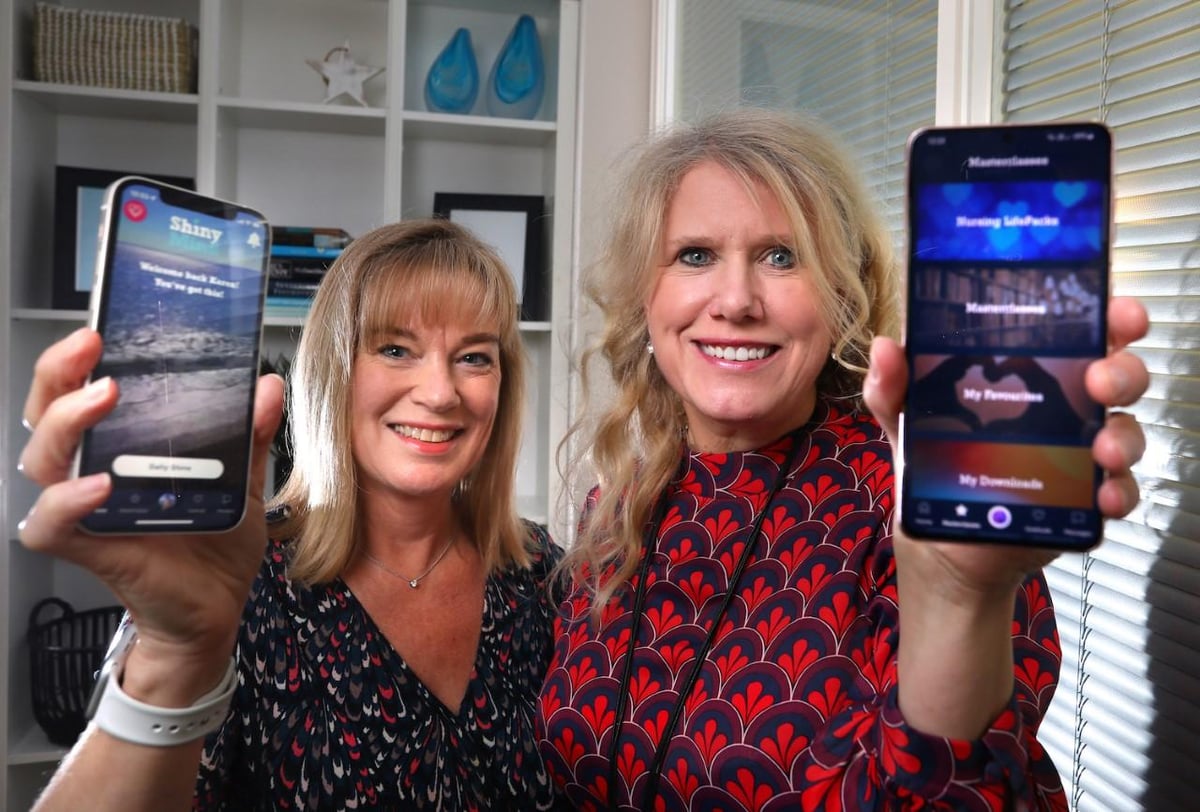In the days leading up to an injection, Julie Raine’s mind clouded with fear – she was convinced the needle would hurt her.
On the day of the injection, after a sleepless night, she tried to calm herself down with sugary drinks, music and soothing words. As the needle penetrated, she turned away in panic; and when it was over, she would burst into tears and take a whole day to recover. Most of the time, she skipped her date altogether.
The New Zealander has struggled with trypanophobia – a phobia of needles – for as long as she can remember.
This prevented Raine from having blood tests, prevented her from being vaccinated against Covid-19 and caused her to flee the room where her teenage daughter was about to undergo surgery.
If someone had told her that she could get the Covid-19 vaccine without fear and without support, she would never have believed it. But confronting her phobia using virtual reality transformed her life.
A six-week clinical trial of a phone app called oVRcome, which is designed to treat phobias using a combination of mindfulness modules and virtual reality exposure therapy, has been successful, researchers report from the University of Otago in an article published in the Australian and New Zealand Journal of Psychiatry.
Tech entrepreneur Adam Hutchinson came up with the idea for the app in 2020 after discovering there was a gap in treatment for anxiety disorders and other mental health issues – only 15-25% of disorders are treated globally in low- and middle-income countries, while up to 50-65% are treated in high-income countries, according to the World Health Organization.
Meanwhile, New Zealand’s mental health system is in crisis due to a lack of staff and resources, and its youth suicide rates are the highest in the developed world.
“A person is two to three times more likely to develop a more serious illness like depression, alcoholism or even suicide leaving an anxiety disorder untreated,” Hutchinson said.
“If we can provide an effective, low-cost solution that people can use in the privacy of their own home earlier in their mental health treatment journey, we can potentially reduce the risk of developing more serious illnesses. .”
“Something quite remarkable happened”
Hutchinson consulted with clinical psychologists, developed a prototype, and began testing between May and October 2021. The app is based on behavioral treatment exposure therapy – treatment that safely exposes a patient to a situation that would usually cause him anxiety, or that he would try to avoid.
There were 109 participants in the six-week trial, which treated five common phobias – fear of needles, spiders, flying, heights and dogs.
A core part of the trial required participants to use a virtual reality headset to confront their worst fears. The videos – which are shot in the real world – start lightly and gradually evolve into more anxiety-provoking situations.
Participants must record their level of anxiety before, during and after watching the videos, and can only progress to the next level once their anxiety has dropped below a certain threshold.
For Raine, that first meant entering a virtual medical room and watching a nurse prepare an injection — not administer one — but simply unwrap a needle from plastic or set up a metal tray with supplies.
“It took me 15 tries to complete this video,” she said.
“And then something quite remarkable happened – my whole mindset changed and I was looking forward to watching VR.” Raine had realized that she had never actually watched the whole procedure, and in doing so, she was able to think about an injection in a new way.
“When I think of needles now, I instantly think ‘it helps’ and ‘nurses are there to help me’.”
Raine decided to take part in the trial because she wanted to take her children to be vaccinated against Covid-19.
“I wanted to be a good mom, to be able to at least sit with them in the bedroom without missing out,” she said, adding that since the trial she’s not only been able to sit with her children during their vaccinations , but receiving the blow itself.
Dr Cameron Lacey – associate professor of psychology at the University of Otago and lead researcher on the trial – said the app had been a huge success.
“There was a very clear and positive signal that using the oVRrcome app was significantly reducing [a person’s] level of specific phobia symptoms,” Lacey said.
This was indicated in how people reported the severity of their phobia both immediately after the program ended and again six weeks later. At the start of the trial, participants had an average of 26 out of 40 on the scale, indicating moderate to severe phobia. After the program, that number was reduced to seven and stayed there.
Following the success of the trial, the app, which is now commercially available, included new phobias and will expand into a new program for social anxiety disorders, panic disorders, addiction and depression. New Zealanders can express their interest in taking part in the new trials.
Part of the program’s success is that it’s accessible, Lacey said.
“With virtual reality, you can be at home, be transported to an environment that has those dreaded stimuli – whether it’s heights or spiders – predictably, at your convenience.”
 AD Roberts
AD Roberts


